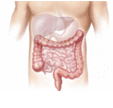Science

Digestive System
https://www.scoilnet.ie/post-primar...ior-cycle/science/digestive-system/ Added: 14 Feb 2017 Contributor: Scoilnet Resource type: ReferenceA Scoilnet collection with resources mapped to the Junior Cycle Science and Home Economics specification. Resources contain external links and videos along with original resources created by teachers.
View full descriptionHow it maps to the curriculum
- JC
- Science
Strand: 5. Biological Science
Strand unit: 4. Human Organs & Systems
Suggestions for use: Teacher reference for planning lessons on the digestive system.
Alternatively, provide the link to students so that they can revise the digestive system.
Key Skills: Communicating Managing Information and Thinking
- JC
- Home Economics
Strand: 1. Food, Health & Culinary Skills
Strand unit: 11. The Digestive System
Student Worksheets
https://www.scoilnet.ieuploads/resources/19945/19668.zip Added: 14 Nov 2016 Contributor: Geraldine Walton Resource type: WorksheetThis workbook is a collection of very good reflective worksheets for post hands-on activities in Basic Horticulture. The worksheets will also give the teacher excellent ideas on hands-on activities. Using the worksheets students will be able to re-enforce and cement their learning to the Ag, Hort curriculum.
View full descriptionHow it maps to the curriculum
- LCA
- Agriculture and Horticulture
Strand: Module 6 - Milk & Meat Production
Strand unit: 01. The Milk/Meat Animal - Feeding & Housing
Suggestions for use: Print a class set prior to lesson. Fill following the relevant activity.
Earth and Space - Axis, Moon, Seasons - HWB
http://resources.hwb.wales.gov.uk/V..._space/eng/Introduction/default.htm Added: 27 Jul 2016 Contributor: Scoilnet Resource type: Lesson Plan / SimulationResource includes interactive whiteboard activities -By carrying out the activities in this lesson pupils will understand: why we have day time and night time on planet Earth, why we have the different seasons and why the moon appears a different shape over the month. Activities include learning activities and animations along with mini assessment activity.
View full descriptionHow it maps to the curriculum
- JC
- Science
Strand: 2. Earth and Space
Strand unit: 4. Model of Earth-Sun-Moon System
Suggestions for use: Use the interactive whiteboard activities to guide your lesson. Click on the words to find out the meaning of axis and gravity, play the animation for your groups to discuss the meaning of seasons and view the picture illustration of the phases of the moon. These activities could be assigned to groups to complete with worksheet/ driving question to present information on. Return as class group to assess classes understand of content by using the interactive whiteboard activity 2.
Key Skills: Communicating Managing Information and Thinking Managing Myself
The Water Cycle
https://www.scoilnet.ieuploads/resources/25486/25222.pdf Added: 29 Dec 2017 Contributor: NIAMH BARRY Resource type: Assessment / ProjectThis is an enquiry activity that challenges students thinking and understanding of the environment. Students will be able to review and reflect on the skills and thinking used in carrying out investigations, and apply their learning and skills to solving problems in unfamiliar contexts. Students should be able to develop and use a model to describe the changes that occur during the water cycle. Students will be able to investigate patterns and relationships between physical observables.
View full descriptionHow it maps to the curriculum
- JC
- Science
Strand: 3. Chemical World
Strand unit: 2. Atomic Nature of Matter & Separation
Suggestions for use: This is an enquiry activity that challenges students thinking and understanding of the environment. Students will be able to review and reflect on the skills and thinking used in carrying out investigations, and apply their learning and skills to solving problems in unfamiliar contexts. Students should be able to develop and use a model to describe the changes that occur during the water cycle. Students will be able to investigate patterns and relationships between physical observables.
Key Skills: Managing Information and Thinking Working with Others Managing Myself
Solar System Comparison Worksheet
https://www.scoilnet.ieuploads/resources/19214/18904.docx Added: 06 Sep 2016 Contributor: Aoife McDonnell Resource type: Guide/notesResource contains a worksheet with questions on comparing planets using a data sheet provided. Students will answer the questions by looking at the data and comparing values.
View full descriptionHow it maps to the curriculum
- JC
- Science
Strand: 2. Earth and Space
Strand unit: 3. Compare Earth with Moon & Other Planets
Suggestions for use: Worksheet can be set as a homework task or completed in groups. Worksheet could be printed and laminated for future use. Students can work in their books.
Key Skills: Communicating Managing Information and Thinking
Criteria for Success on a Planets Project - Comparing Earth to other Planet
https://www.scoilnet.ieuploads/resources/19203/18890.doc Added: 06 Sep 2016 Contributor: Aoife McDonnell Resource type: Assessment / ProjectStudents should be given a success criteria sheet when completing projects. This is an excellent criteria sheet for the project on "Comparing Earth to another Planet". Students should glue to the criteria into their copies. Teacher can assess projects using the criteria sheet.
View full descriptionHow it maps to the curriculum
- JC
- Science
Strand: 2. Earth and Space
Strand unit: 3. Compare Earth with Moon & Other Planets
Suggestions for use: Print the success criteria. Assign students a project on comparing Earth to another Planet. Go through the success criteria with the class responding to questions students may have.
Key Skills: Managing Information and Thinking Managing Myself
States of Matter - NCCA Sample Assessment
https://www.scoilnet.ieuploads/resources/25359/25095.pdf Added: 11 Dec 2017 Contributor: Scoilnet Resource type: AssessmentFirst Year sample of work judged 'In Line With Expectations'. The task involves students writing an article for the science section in their school magazine. They must communicate the types of matter that can exist in a clear, humorous and fact based manner.
View full descriptionHow it maps to the curriculum
- JC
- Science
Strand: 3. Chemical World
Strand unit: 2. Atomic Nature of Matter & Separation
Strand: 3. Chemical World
Strand unit: 4. Classify Substances (Element/Metal/Solid)
Strand: 1. Nature of Science
Strand unit: 1. How Scientists Work
Strand: 1. Nature of Science
Strand unit: 7. Organise &Communicate Scientific Research
Suggestions for use: Assessment task can be used and teachers can reflect on the marking process for making judgments on completed work by students.





